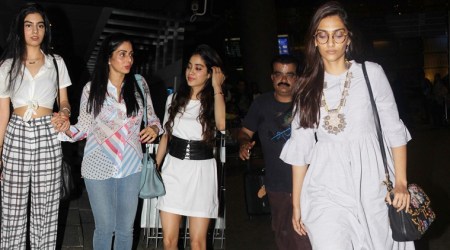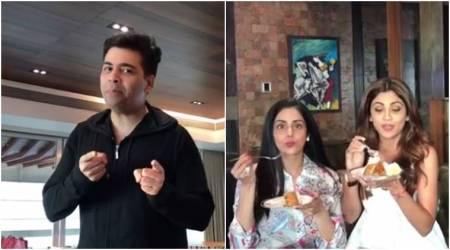 Actor Akshaye Khanna
Actor Akshaye Khanna
Boney Kapoor is calling his latest film, Mom, actor Akshaye Khanna’s “real comeback” and “his career’s finest performance”. The object of his praise, however, is playing it cool. “That’s sweet of Boney to say. I can’t say if it’s going to be my best performance; the audience decides such things, and I don’t feel the need to publicly comment on my work,” says Khanna.
The 42-year-old is famous for being a bit of a recluse and media-shy, but things are changing, he says. “All these years, I thought the media were not my friends. But I no longer think they are my enemies, either,” says Khanna, as he speaks candidly about mourning his father, the late Vinod Khanna, how Border impacted his career and what he loved most about working with Sridevi. Excerpts from an interview:
You’re not one to pick his films easily. What makes you choose a project?
I don’t really think about the stuff I want to do — the moment I start to think of whether I should do a particular film or not, I shouldn’t do it. The reaction (to a script) should be spontaneous, instinctive and immediate. It’s not a cerebral process for me.
So that’s what happened with Mom.
Yes. I play a police officer. It’s just an insanely beautiful, human story. I’m so excited about this film because I have never been a part of something that is so deep. Once in a while, you’ll come across a film that impacts you hard, and this is one of those films… I know it. I’m dying to see how people react to the subject when the film comes out next month.
Last week, JP Dutta and the cast of Border celebrated 20 years of the film. You were missing and were fondly remembered by everybody, especially Pooja Bhatt, who played your fiancée.
Ah yes (smiles). Well, I wasn’t there because I’m not in the mental frame to be a part of celebrations. I’m in mourning. Yes, I’m back at work, but being a part of a celebration is not something I can do right now.
You got the role after your debut film, Himalay Putra. Is that right?
No, I shot for Border and Himalay Putra simultaneously. I benefitted a lot from Border — it is a milestone in my career. In a cast full of stalwarts and stars, JP (Dutta) managed to make me stand on my own two feet. All those guys — Suneil (Shetty), Sunny (Deol), Puneet (Issar), Kulbhushan (Kharbanda), Jackie (Shroff) — if they hadn’t taken care of the child I was at the time, (I was 19 when I joined the industry, 22 when Border was released), it wouldn’t have been possible for me to deliver.
 Sridevi and Khanna feature in the upcoming film, Mom. (Source: Image posted on Twitter by Sridevi)
Sridevi and Khanna feature in the upcoming film, Mom. (Source: Image posted on Twitter by Sridevi)
So, what was it like when you made your debut in 1997?
When I meet aspiring actors, I sit them down and ask them, ‘Have you thought about the possibility of rejection?’ If you’re rejected, then it’s going to stay with you for the rest of your life — it’s a stamp on your forehead for everybody to see till the day you die. Because that is … tough. I come from a family of actors but nobody told me this — because nobody wants to consider that possibility.
What was it like to work with Sridevi and Nawazuddin Siddiqui in Mom?
Nawaz is a nice guy, I enjoyed working with him. But Sridevi, oh man. I’m a quiet and private person on set, so is she. But she takes it to another level. I loved that about her! It’s beautiful, you know — the space you are working in is so well defined; the borders are so thickly marked; everything is clear and it’s so liberating to have that. She brings a certain dignity and grace to the space she occupies. It’s very rare to come across an artiste like that. She’s probably done about two films in the last decade, but look at her — she is a national treasure.
You’ve also not been as prolific as one had thought you would be.
I had some personal issues in the the past two-three years which didn’t allow me to work. But apart from acting, there’s nothing else I’ve done since I was 19. I’ve been working all my life. It was torture, to not be able to work, and there was no getting away from the depression it brings. Then, one understands the value the opportunity one has been given to be an actor. The audience decides who they will watch, and you’ll only get one, maximum two new faces each year.
You are mourning the loss of your father, Vinod Khanna. What would you say is his legacy to you?
Two things: one is the love he gave me, and the other would be how non-judgmental he was.
He was amazing that way; he never gossiped or spoke ill of anybody. He was very accepting of people, and without being opinionated — it’s a quality I tremendously admired in him.

